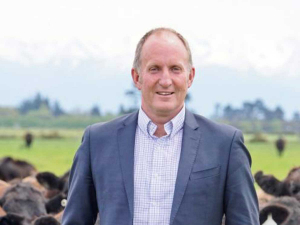Red meat rebound
The red meat sector is poised for a strong rebound this season, with export receipts forecast to top $10 billion and farm profitability to almost double.
 BLNZ chair Andrew Morrison concedes that industry groups have not got the message out to farmers that they are engaging strongly with government to get the right policy settings.
BLNZ chair Andrew Morrison concedes that industry groups have not got the message out to farmers that they are engaging strongly with government to get the right policy settings.
Beef+Lamb NZ chair Andrew Morrison has fended off criticism that his organisation is too cosy with government and won’t speak out against it.
In recent weeks, there have been growing calls for the industry good organisations – Beef+Lamb NZ and DairyNZ – to be more vocal against some of the government reforms that are affecting farmers. But Morrison says people should judge them on the outcomes, not the outbursts.
He says right now an entity of 15 farming groups are working together to have a mature conversation with government around what is the best way to achieve some of these reforms so that they don’t impact negatively on the primary sector.
“None of the sectors are selling each other out to get a result. This is about an aligned agreement about what is the best way to construct policy, and throwing rocks doesn’t work – it just gets people offside,” Morrison told Rural News. “You can have heated, mature debates, but you still have to be respectful.”
Morrison says the new order is about the primary sector and key government ministries building trust with each other – something which he believes has been missing in the past. He says it’s about assuring officials that they have practical solutions which will achieve the policy outcomes of government and also work on farm.
“We have to be the trusted voice of reason and convince people about our arguments based on reason and also on emotion.”
Morrison says there is no point in making statements which make producers feel good – when in fact they are antagonising others. He says the messaging has to be more sophisticated than it has been in the past. Morrison concedes that they have not got the message out to farmers that they are engaging strongly with government to get the right policy settings.
“When things ,go wrong we just don’t roll over. We have some pretty heated debates. Our key message is thriving rural communities, valued by all New Zealanders,” he says.
Morrison says people have to understand that they are working with a government that has a majority of 28 seats and, in essence, could enact whatever policy they want. He says individuals in farmer groups have their own ways of working, but they all have the same goal of working together and to influence ministers.
Sector Beefs Up Collaboration
Beef+Lamb NZ and the Meat Industry Association (MIA) say they intend to work more collaboratively.
This is one of the key take home messages from a just released report on the red meat sector, which canvasses issues facing the sector.
It notes the resilience of the sector during Covid, the success with M. bovis and the challenges around securing new free trade agreements.
The report also has commentary on climate change and other environmental matters.
MIA chief executive Sirma Karapeeva says her goal is to work much more closely with B+LNZ.
She says this is because the issues both organisations are facing are not things that one agency on their own can have the energy, the resources or the space to deal with. Karapeeva points to issues such as climate change and the raft of environmental reforms.
"There are some pretty hard deadlines and we need to collectively focus on these," she told Rural News. "There is now a maturity of the relationship between the two organisations and we realise we need to work together to achieve something for the industry as a whole."
Karapeeva acknowledges that to win arguments, these need to be backed by hard science. She says, to that end, they are engaging experts from research organisations and universities to produce key reports. For example, they have just created a lifecycle analysis report on sheep and beef products.
"I totally agree that science is going to be very important in supporting our evidence and positions," Karapeeva says.
"But we can't employ so many different people. We have to look at creating good, strong policy in Wellington and then tap into the wide network of scientific experts in NZ and through that network, also tap into some international experts."
The Meat Industry Association (MIA) is once again looking for game-changing ideas for New Zealand's red meat processing and exporting sector.
Environment Southland is inviting feedback on two bylaws that play a critical role in safeguarding the region's waterways and ensuring the safety of the local community.
While the North Island is inundated with rain, Southland is facing receding water levels as warm weather and lack of rainfall continues.
Entries have opened for the 2026 Fieldays Innovation Awards.
Organisers are expecting another full field of 40 of the country’s top shearers for the popular Speed Shearing event at this year’s Southern Field Days at Waimumu.
The Southern Field Days Innovation Awards have a great record in picking winners and the winner of the 2024 event will be putting up a display to support the event at this year’s show.

OPINION: Meanwhile, red blooded Northland politician Matua Shane Jones has provided one of the most telling quotes of the year…
OPINION: This old mutt has been around for a few years now and it seems these ‘once in 100-year’ weather…